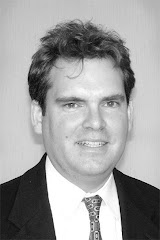There is much to be learned from the Iowa experience for Obama when it comes to narrowing that margin. He can stary by talking with more community newspapers in certain states.
While the "media" ranks with lawyers and telemarketers on so many America's Most-Hated Lists, weekly papers and small dailies -- the ones that still run so-called "chicken dinner" stories, engage in unabashed boosterism for the local hospital or high school sports teams, often retain great standing in rural areas.

The reporters and editors Obama talks to at these newspapers are the same ones who field calls from loved ones after the untimley death of a teen or for the reporting of a quick announcement on an 80th birthday or a new business opening or for help about fixing up the local cemetery or even getting someone to clean up the junk from an unsightly yard (all things I talked about with people in just the last week in Carroll, Iowa, where my family runs a small daily newspaper). In short, we are old the town square. People trust us more than the bigger papers. They know us personally. We are in the next pew at church or just a few stools down in the tavern.
"There's actually some research to prove that," Al Cross, director of the Institute for Rural Journalism and Community Issues, tells Iowa Independent.
Our newspaper has a decided different role in life in Carroll, Iowa, than The New York Times does with its readers. Jeff Zeleny of The New York Times (who used to write for The Des Moines Register) understands this.
"There is, perhaps, no better way to give an hour-long presidential visit far greater staying power than appearing on the pages of the weekly newspaper," Zeleny wrote before the Iowa caucuses.
The Washington Post's Peter Slevin -- who spent several days in Carroll -- wrote a piece on caucus night chronicling the Obama communications team's effort to cultivate working relationships with rural journalists months before the Illinois senator's 8 percentage point win here.

Faced with a well-documented challenge to court rural voters, does it make sense for Obama to use a strategy of reaching out to smaller papers as a way to get more punch for his time in rural areas?
"I think it would be useful around the margins," Cross said.
Cross said Obama doesn't have the luxury of being able to zero in on just one state as he did with Iowa where he used many angles to get that win, including a strategy to grant access to the more influential small dailies and weeklies.
"The thing that is most valuable to him right now is time," Cross said.
That said, using some variation of his rural newspaper outreach strategy may pay off for Obama in some Southwest states like New Mexico or in New Hampshire, Cross said.
"It would depend on the degree of penetration," Cross said.
In the latest issue of Newsweek, dated today in fact, former Congressman Harold Ford, Jr., of Tennessee, an African-American who nearly won a seat in the U.S. Senate (and likely would have were it not for an 11th-hour racist smear television ad) advises Obama that the white voters of much of the nation's rural areas just need to get to beyond the celebrity.
Here is Ford:
Obama has run a first-rate primary campaign, energizing countless new voters. Now he's got to get off the big stage more often and meet with people where they work, play and pray. That means getting out to schools and factories, coffee shops, fairgrounds and houses of worship. He needs to earn their trust.
Bill Bishop, an editor with The Center For Rural Strategies Daily Yonder Web site, writes that the rural white working class gap Obama must overcome is less about the color of Obama's face than it is about the face time on his schedule in wide open spaces.
If he takes Ford's advice, Obama would be well advised to roll out the Iowa media plan and schedule stops in community newspapers. Sitting down for interviews with those editors and reporters not only will provide him with the ink in publications that are about far more than just news (people really do rely on us for grocery ads and keep the paper around for a while as a result).
Residents of small towns, who interact with the editors of papers like my family's at church and in the Rotary Club or at a pancake fund-raiser for a sick child, pull us aside with some frequency and ask what the candidates were like up close and personal. Are they something more than talk-radioed and MSNBC-ed caricatures? They hear Chris Matthews. But they believe us.
This story first appeared at Iowa Independent.com.





No comments:
Post a Comment